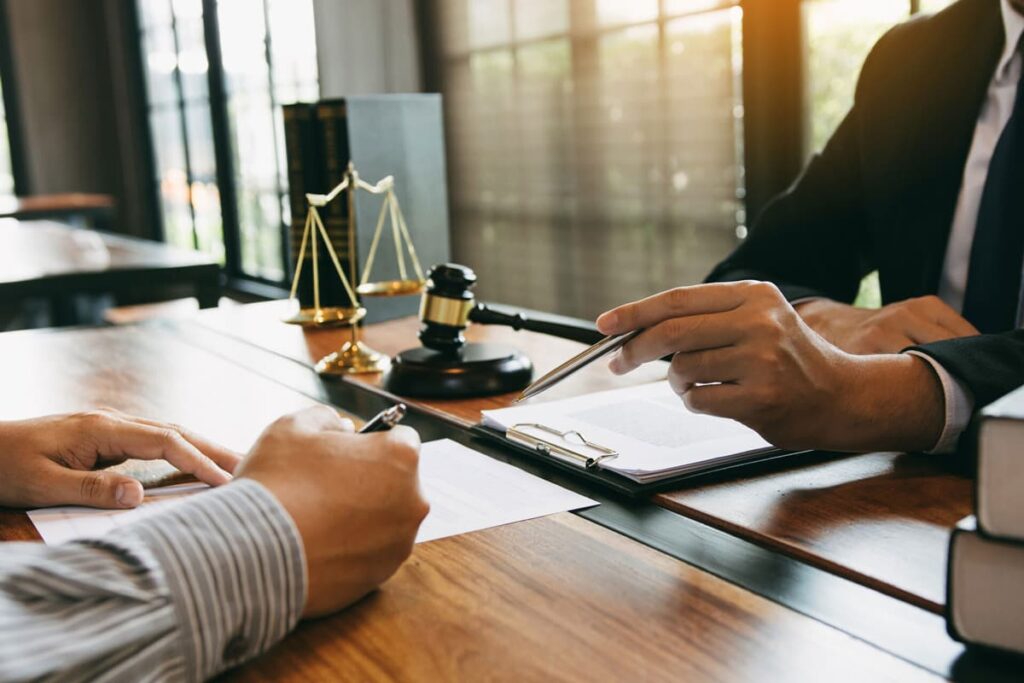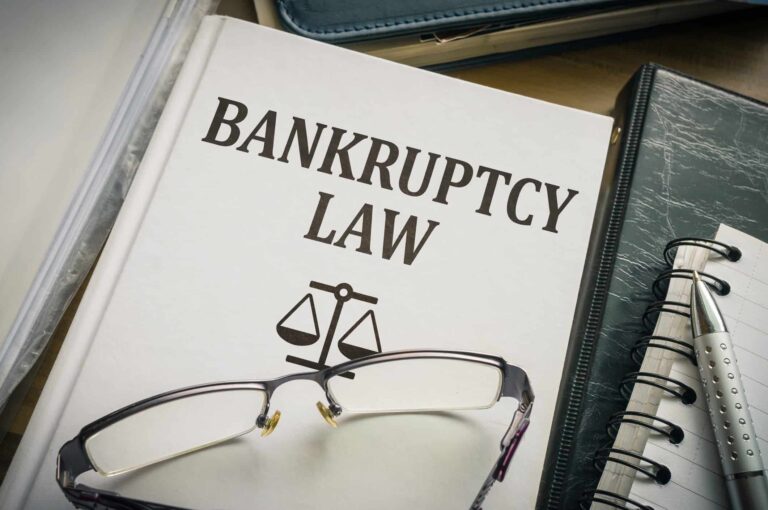The Role Of A Bankruptcy Lawyer In A Chapter 13 Case
Filing for personal bankruptcy is a complex legal process, and it can be a challenging time for anyone. It is common to experience stress and anxiety when trying to determine your best plan of action regarding bankruptcy. While it’s not required by law to have legal representation when filing a Chapter 13 bankruptcy case, it can be extremely beneficial to have an experienced bankruptcy lawyer by your side. Acquiring suitable legal representation can provide you with the guidance, support, and expertise that you need to navigate the process successfully. Knowing you have experienced legal counsel can help reduce the negative emotions associated with the bankruptcy process and ensure no aspect is overlooked.
What is the role of a bankruptcy lawyer?
A bankruptcy attorney can assess your situation, determine if bankruptcy is a good option for you, and advise you on the type of bankruptcy that would be the most beneficial for your circumstances. Bankruptcy lawyers represent individuals in Chapter 7 or Chapter 13 proceedings, helping them navigate the complex aspects of bankruptcy. They advocate on behalf of their clients and help obtain the best possible outcome. Bankruptcy procedures require a large number of critical decisions from the beginning to the end of the process. Your attorney is a priceless resource to help you make informed decisions, collect and file documents, and navigate procedures.
So what does a bankruptcy lawyer do? They are an unbiased party there to aid you in taking a critical look at your debts and assets to determine if bankruptcy is the best option for you or if there are other options that would more effectively improve your circumstances. If it is determined that bankruptcy is the best option, your attorney can assist in outlining the risks and benefits of filing a Chapter 7 bankruptcy or Chapter 13 bankruptcy. A bankruptcy attorney will help you create a repayment plan that is feasible and fair and provide you with valuable advice on how to manage your finances during this time to avoid the risk of falling back into debt.
Provide legal advice specific to your case
When you’re buried in debt, bankruptcy can feel like a life raft. Although it is a decision that should not be taken lightly, it can be an effective way to gain financial relief for you and your family. If you are considering filing for bankruptcy, seeking the guidance of a bankruptcy attorney may be in your best interest.
Prepare paperwork
An attorney will help you gather and prepare the necessary paperwork to file your case successfully. The documents are pertinent to determine your assets, debts, income, and expenses. They are your best resource to answer any questions you may have during the process.
Important documents you will need when filing bankruptcy include:
- Tax returns
- Income documentation
- Proof of real estate fair market value
- Mortgage statements
- Vehicle registration, proof of value, and insurance
- Retirement and bank account statements
- Identification
- Other documents (e.g., statements of circumstances affecting your bankruptcy, such as alimony, child support, or any other atypical expense).
Navigate complex Chapter 13 legal matters
Bankruptcy law can be overwhelming and complex. Rules for filing a Chapter 13 bankruptcy can even vary from state to state. It is essential that whoever is filing your Chapter 13 bankruptcy case knows the bankruptcy code, requirements, and laws in your state. If any laws or requirements are overlooked, it may have a negative impact on your case. An experienced and knowledgeable attorney will reliably advise and guide you through the process to ensure the best outcome.
CTA: If you are in the market for a reliable and competent Las Vegas bankruptcy lawyer, contact DeLuca & Associates today to improve your financial condition.
Representation at your Chapter 13 bankruptcy hearing
First and foremost, it is important to understand what a Chapter 13 confirmation hearing entails. Before your hearing, your lawyer will have helped you devise a repayment plan. Your attorney can assist you in presenting that your best efforts are being made to pay back creditors. As well as determining your disposable income that will be used to repay your debt, this is how you will show the court that you have sufficient income to pay everything required in a Chapter 13 plan. Once the hearing begins, you and your lawyer will be asked questions pertaining to your plan and financial circumstances.
When the repayment plan is satisfactory, the judge will confirm it and request you or your attorney to submit a confirmation order for review. If the judge deems your plan insufficient in remedying the problem or there is failure to fix an issue with the plan, your case can be dismissed. Your bankruptcy attorney is in your corner to help ensure that dismissal does not occur. They will argue that the plan that has been created complies with bankruptcy codes and laws and is fair and sufficient for all parties involved.
Provide things to the bankruptcy court
During bankruptcy court, you may be asked to provide additional documents or information. Your attorney will be there to aid you in understanding what additional information the court requires and why. Bankruptcy trustees are present during your case as well. Their job is to evaluate your case, act as a disbursing agent, and collect payments from the debtor for distribution to creditors.
After reviewing your case, bankruptcy trustees can file written objections. If this occurs, you and your attorney will have the opportunity to challenge the trustee’s arguments in front of the judge. A trustee may find discrepancies in your plan due to your income and ability to repay your debts. They may feel you should be making an additional payment or that you listed nonexempt property as exempt. Your legal representation will fight on your behalf and dispute these allegations.
Ensure you get the most out of bankruptcy meetings
During bankruptcy meetings with your attorney, you will discuss every aspect of your case. Your attorney will ensure that nothing is overlooked and everything pertaining to your case is addressed. These meetings are the best opportunity for you to ask any questions you may have about your case and go over the laws and codes pertaining to bankruptcy. It is important that all necessary information and documents are filed with the court, and your attorney makes sure that happens.
Ensure all eligible debts are discharged
Debts fall into specific categories. The category each of your debts falls under determines whether it must be paid or if it can be discharged. Once your Chapter 13 repayment plan has been approved, your attorney will ensure that any remaining eligible balances are discharged. Your lawyer safeguards your finances by making sure that you pay only what is necessary for your case and that all else is released from your debt.
A Nevada bankruptcy lawyer can guide you in your Chapter 13 bankruptcy case

Bankruptcy may seem daunting, but Chapter 13 offers a clear path to financial stability. With the help of an experienced and knowledgeable attorney and a commitment to the process, you can take control of your debts and create a brighter financial future. If you find yourself struggling with debt, exploring your options and seeking help may be the solution for you. There is a way forward and options available to you that can improve your financial circumstances.
CTA: To begin your exploration of financial liberation, contact a $0 down bankruptcy attorney today!






